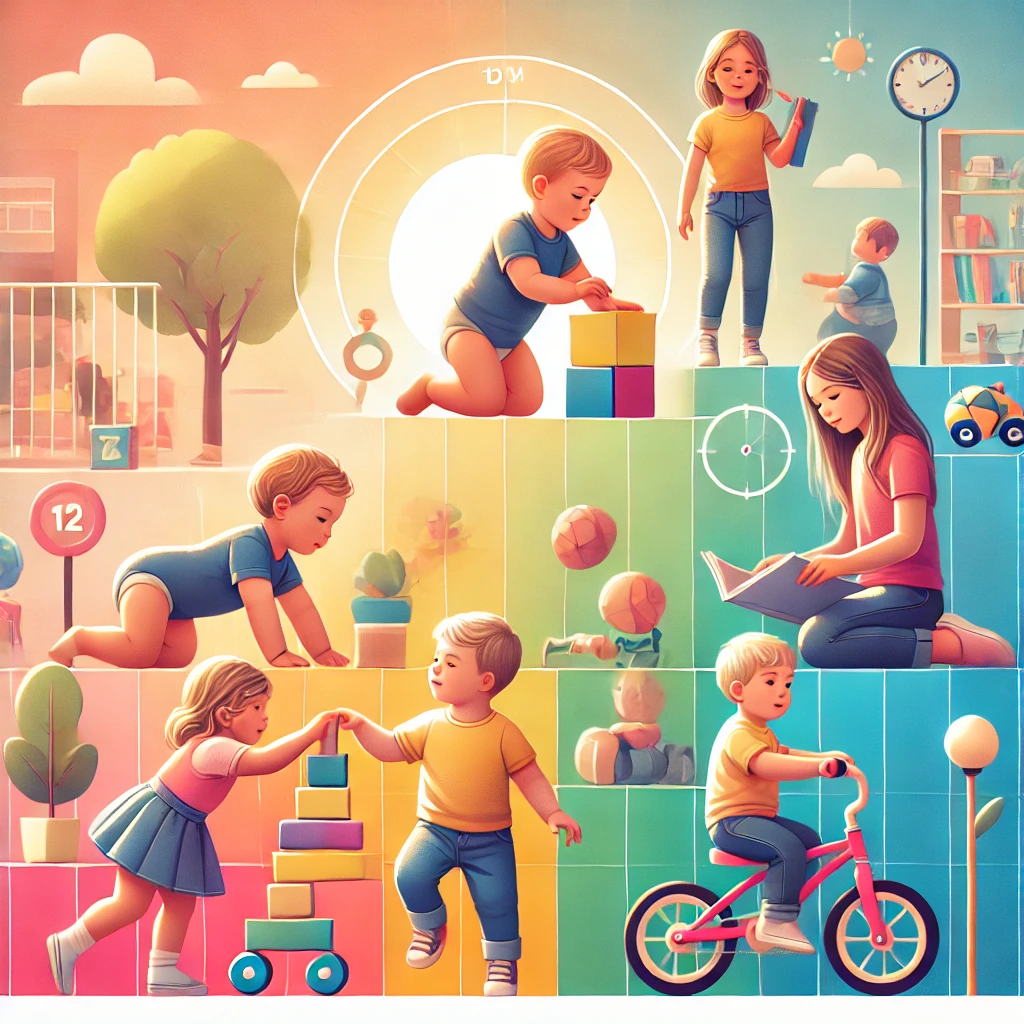
Understanding Child Development: Key Milestones and What They Mean
Why Child Development Milestones Matter
Watching your child grow is like witnessing a tiny miracle unfold right before your eyes. But have you ever wondered if they’re hitting the right milestones at the right time? Understanding child development is crucial for healthy parenting practices. It helps you support your child’s growth, identify potential challenges early, and foster their overall well-being.
The Four Major Areas of Child Development
Child development is a broad spectrum, but it generally falls into four key areas. Each plays a vital role in shaping your little one into a well-rounded individual.
1. Cognitive Development
This covers your child’s ability to think, learn, and problem-solve. From recognizing colors to solving puzzles, cognitive skills develop rapidly in early childhood.
2. Physical Development
Physical milestones include everything from rolling over to walking and running. Strength, coordination, and motor skills all fall under this category.
3. Social and Emotional Development
Can your child share toys? Do they express emotions appropriately? Social skills and emotional regulation are critical for forming relationships and navigating life.
4. Language and Communication Development
From baby babbles to full sentences, language development is essential. Effective communication with teenagers later on also starts with strong early language skills.
Key Developmental Milestones by Age
Infancy (0-12 Months)
Babies experience rapid growth in their first year. Key milestones include recognizing faces, responding to sounds, and starting to crawl.
Toddlerhood (1-3 Years)
This is when curiosity explodes! Toddlers begin to walk, say simple words, and develop independence. Providing the best educational tools for kids in 2025 can make a big difference at this stage.
Preschool Age (3-5 Years)
At this stage, children become little chatterboxes. They start forming friendships, improving motor skills, and showing creativity through drawing and storytelling.
School Age (6-12 Years)
Kids begin to grasp complex ideas, read fluently, and develop problem-solving skills. The best apps for helping kids with homework can support academic success.
Adolescence (13-18 Years)
Teenagers face significant emotional and social changes. Effective communication with teenagers is key to helping them navigate these challenges confidently.
How to Support Your Child’s Development
1. Encourage Creativity
Wondering how to encourage creativity in children? Let them explore, ask questions, and experiment. Arts and crafts, storytelling, and open-ended play foster imagination.
2. Balance Screen Time
Top tips for managing screen time? Set clear rules, use educational content, and encourage outdoor activities. Finding a balance is crucial for healthy growth.
3. Use Educational Toys and Tools
Investing in the best educational tools for kids in 2025 can transform learning into fun. Puzzles, building blocks, and STEM toys enhance cognitive skills.
4. Create a Positive Learning Environment at Home
A supportive environment boosts confidence. Need tips on how to create a positive learning environment at home? Keep distractions low, encourage curiosity, and praise efforts.
Work-Life Balance: The Secret to Happy Parenting
Juggling work and parenting can feel like a circus act. But how to maintain work-life balance as a parent? Set boundaries, prioritize quality time, and practice self-care. A happy parent means a happy child.
Affordable and Fun Learning Activities
Think learning has to be expensive? Think again! There are many affordable ways to create fun learning activities, from DIY science experiments to storytelling games.
Common Parenting Challenges and How to Overcome Them
Every parent faces struggles. From tantrums to teenage rebellion, here are some top parenting challenges and how to overcome them:
- Behavioral Issues: Set clear expectations and follow through with consequences.
- Communication Struggles: Practice patience and active listening.
- Balancing Discipline and Love: Be firm but compassionate.
Conclusion
Parenting is an ever-evolving journey filled with joy, challenges, and learning. By understanding key child development milestones and implementing practical parenting advice, you can raise confident, happy, and well-adjusted children. Stay informed, be patient, and most importantly—enjoy the ride!
FAQs
1. How can I track my child’s development?
Keep an eye on milestones, engage with teachers, and schedule regular check-ups with a pediatrician.
2. What are the best educational tools for kids in 2025?
STEM kits, interactive learning apps, and hands-on puzzles are great choices.
3. How do I handle a child who is not meeting milestones?
Don’t panic! Every child develops at their own pace. If concerned, consult a pediatrician or child development specialist.
4. What are some fun ways to encourage learning at home?
Try DIY experiments, storytelling, and educational board games to make learning exciting.
5. How can I improve communication with my teenager?
Listen actively, respect their opinions, and create a judgment-free zone for open discussions.